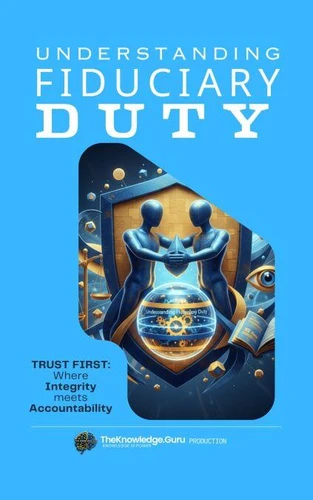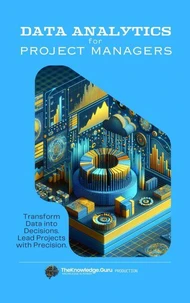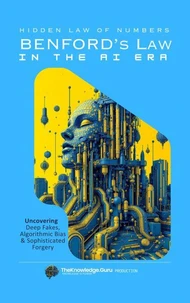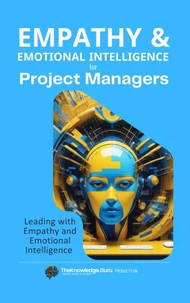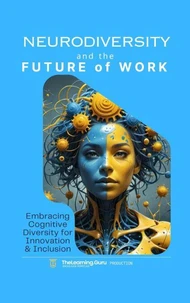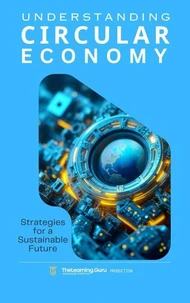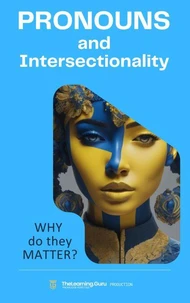Nouveauté
Understanding Fiduciary Duty: Law, Ethics, and the Power of Trust
Par :Formats :
Disponible dans votre compte client Decitre ou Furet du Nord dès validation de votre commande. Le format ePub est :
- Compatible avec une lecture sur My Vivlio (smartphone, tablette, ordinateur)
- Compatible avec une lecture sur liseuses Vivlio
- Pour les liseuses autres que Vivlio, vous devez utiliser le logiciel Adobe Digital Edition. Non compatible avec la lecture sur les liseuses Kindle, Remarkable et Sony
 , qui est-ce ?
, qui est-ce ?Notre partenaire de plateforme de lecture numérique où vous retrouverez l'ensemble de vos ebooks gratuitement
Pour en savoir plus sur nos ebooks, consultez notre aide en ligne ici
- FormatePub
- ISBN8232129521
- EAN9798232129521
- Date de parution04/11/2025
- Protection num.pas de protection
- Infos supplémentairesepub
- ÉditeurHamza elmir
Résumé
We explore one of the most powerful and far-reaching principles in law, governance, and professional ethics - the fiduciary obligation. Rooted in trust and good faith, fiduciary duty governs relationships where one party is bound to act in the best interests of another. From trustees and corporate directors to investment advisers and attorneys, fiduciary duty defines the highest standard of conduct known in professional life.
This book unpacks the legal, ethical, and economic dimensions of fiduciary relationships, equipping learners to recognize, manage, and uphold fiduciary responsibilities in complex, high-stakes environments. Through case studies, ethical simulations, and applied analysis, participants will examine how duties of loyalty, care, impartiality, confidentiality, and disclosure operate in real-world contexts and what happens when those duties are breached.
Readers will not only master the doctrine's conceptual foundations but also its practical applications in modern corporate governance, financial regulation, estate management, and professional accountability. Emphasis is placed on ethical reasoning, conflict-of-interest management, and decision-making under competing duties. By the end, you will understand that fiduciary duty is not merely a legal formality - it is a moral commitment to stewardship, integrity, and trust. Learning OutcomesUpon completion, you will be able to: Define and distinguish the core fiduciary duties - loyalty, care, good faith, confidentiality, and disclosure - and explain their interrelationships.
Analyze fiduciary roles across professions (trustees, directors, advisors, attorneys, guardians) and identify how these obligations arise by law, contract, or conduct. Evaluate real-world cases of fiduciary breaches, applying principles like the Business Judgment Rule and Prudent Investor Rule to determine liability and remedy. Apply ethical decision-making frameworks to resolve conflicts of interest and ensure transparent, beneficiary-centered conduct.
Design governance mechanisms and compliance controls that institutionalize fiduciary integrity in organizations. Reflect critically on fiduciary duty as the moral cornerstone of trust in financial, legal, and organizational systems. Pedagogical/Andragogic ApproachThis book combines case-based learning, applied legal analysis, and ethical reasoning labs. Learners/Readers will interpret landmark cases, design fiduciary compliance plans, and engage in realistic simulations where they must act as fiduciaries balancing loyalty, prudence, and transparency. Target Audience Law, business, finance, and governance students Company Directors, Corporate executives, trustees, and compliance officers Financial and legal professionals seeking fiduciary certification or continuing education Anyone responsible for managing others' assets, rights, or welfare ? Includes optional Advanced Track and Worked Examples.? Eligible for CPD/PDU's (Continuing Professional Development / Professional Development Unit), Self-Attesting CPD Certificate included. Fiduciary duty isn't just law.
It's the highest form of trust.
This book unpacks the legal, ethical, and economic dimensions of fiduciary relationships, equipping learners to recognize, manage, and uphold fiduciary responsibilities in complex, high-stakes environments. Through case studies, ethical simulations, and applied analysis, participants will examine how duties of loyalty, care, impartiality, confidentiality, and disclosure operate in real-world contexts and what happens when those duties are breached.
Readers will not only master the doctrine's conceptual foundations but also its practical applications in modern corporate governance, financial regulation, estate management, and professional accountability. Emphasis is placed on ethical reasoning, conflict-of-interest management, and decision-making under competing duties. By the end, you will understand that fiduciary duty is not merely a legal formality - it is a moral commitment to stewardship, integrity, and trust. Learning OutcomesUpon completion, you will be able to: Define and distinguish the core fiduciary duties - loyalty, care, good faith, confidentiality, and disclosure - and explain their interrelationships.
Analyze fiduciary roles across professions (trustees, directors, advisors, attorneys, guardians) and identify how these obligations arise by law, contract, or conduct. Evaluate real-world cases of fiduciary breaches, applying principles like the Business Judgment Rule and Prudent Investor Rule to determine liability and remedy. Apply ethical decision-making frameworks to resolve conflicts of interest and ensure transparent, beneficiary-centered conduct.
Design governance mechanisms and compliance controls that institutionalize fiduciary integrity in organizations. Reflect critically on fiduciary duty as the moral cornerstone of trust in financial, legal, and organizational systems. Pedagogical/Andragogic ApproachThis book combines case-based learning, applied legal analysis, and ethical reasoning labs. Learners/Readers will interpret landmark cases, design fiduciary compliance plans, and engage in realistic simulations where they must act as fiduciaries balancing loyalty, prudence, and transparency. Target Audience Law, business, finance, and governance students Company Directors, Corporate executives, trustees, and compliance officers Financial and legal professionals seeking fiduciary certification or continuing education Anyone responsible for managing others' assets, rights, or welfare ? Includes optional Advanced Track and Worked Examples.? Eligible for CPD/PDU's (Continuing Professional Development / Professional Development Unit), Self-Attesting CPD Certificate included. Fiduciary duty isn't just law.
It's the highest form of trust.
We explore one of the most powerful and far-reaching principles in law, governance, and professional ethics - the fiduciary obligation. Rooted in trust and good faith, fiduciary duty governs relationships where one party is bound to act in the best interests of another. From trustees and corporate directors to investment advisers and attorneys, fiduciary duty defines the highest standard of conduct known in professional life.
This book unpacks the legal, ethical, and economic dimensions of fiduciary relationships, equipping learners to recognize, manage, and uphold fiduciary responsibilities in complex, high-stakes environments. Through case studies, ethical simulations, and applied analysis, participants will examine how duties of loyalty, care, impartiality, confidentiality, and disclosure operate in real-world contexts and what happens when those duties are breached.
Readers will not only master the doctrine's conceptual foundations but also its practical applications in modern corporate governance, financial regulation, estate management, and professional accountability. Emphasis is placed on ethical reasoning, conflict-of-interest management, and decision-making under competing duties. By the end, you will understand that fiduciary duty is not merely a legal formality - it is a moral commitment to stewardship, integrity, and trust. Learning OutcomesUpon completion, you will be able to: Define and distinguish the core fiduciary duties - loyalty, care, good faith, confidentiality, and disclosure - and explain their interrelationships.
Analyze fiduciary roles across professions (trustees, directors, advisors, attorneys, guardians) and identify how these obligations arise by law, contract, or conduct. Evaluate real-world cases of fiduciary breaches, applying principles like the Business Judgment Rule and Prudent Investor Rule to determine liability and remedy. Apply ethical decision-making frameworks to resolve conflicts of interest and ensure transparent, beneficiary-centered conduct.
Design governance mechanisms and compliance controls that institutionalize fiduciary integrity in organizations. Reflect critically on fiduciary duty as the moral cornerstone of trust in financial, legal, and organizational systems. Pedagogical/Andragogic ApproachThis book combines case-based learning, applied legal analysis, and ethical reasoning labs. Learners/Readers will interpret landmark cases, design fiduciary compliance plans, and engage in realistic simulations where they must act as fiduciaries balancing loyalty, prudence, and transparency. Target Audience Law, business, finance, and governance students Company Directors, Corporate executives, trustees, and compliance officers Financial and legal professionals seeking fiduciary certification or continuing education Anyone responsible for managing others' assets, rights, or welfare ? Includes optional Advanced Track and Worked Examples.? Eligible for CPD/PDU's (Continuing Professional Development / Professional Development Unit), Self-Attesting CPD Certificate included. Fiduciary duty isn't just law.
It's the highest form of trust.
This book unpacks the legal, ethical, and economic dimensions of fiduciary relationships, equipping learners to recognize, manage, and uphold fiduciary responsibilities in complex, high-stakes environments. Through case studies, ethical simulations, and applied analysis, participants will examine how duties of loyalty, care, impartiality, confidentiality, and disclosure operate in real-world contexts and what happens when those duties are breached.
Readers will not only master the doctrine's conceptual foundations but also its practical applications in modern corporate governance, financial regulation, estate management, and professional accountability. Emphasis is placed on ethical reasoning, conflict-of-interest management, and decision-making under competing duties. By the end, you will understand that fiduciary duty is not merely a legal formality - it is a moral commitment to stewardship, integrity, and trust. Learning OutcomesUpon completion, you will be able to: Define and distinguish the core fiduciary duties - loyalty, care, good faith, confidentiality, and disclosure - and explain their interrelationships.
Analyze fiduciary roles across professions (trustees, directors, advisors, attorneys, guardians) and identify how these obligations arise by law, contract, or conduct. Evaluate real-world cases of fiduciary breaches, applying principles like the Business Judgment Rule and Prudent Investor Rule to determine liability and remedy. Apply ethical decision-making frameworks to resolve conflicts of interest and ensure transparent, beneficiary-centered conduct.
Design governance mechanisms and compliance controls that institutionalize fiduciary integrity in organizations. Reflect critically on fiduciary duty as the moral cornerstone of trust in financial, legal, and organizational systems. Pedagogical/Andragogic ApproachThis book combines case-based learning, applied legal analysis, and ethical reasoning labs. Learners/Readers will interpret landmark cases, design fiduciary compliance plans, and engage in realistic simulations where they must act as fiduciaries balancing loyalty, prudence, and transparency. Target Audience Law, business, finance, and governance students Company Directors, Corporate executives, trustees, and compliance officers Financial and legal professionals seeking fiduciary certification or continuing education Anyone responsible for managing others' assets, rights, or welfare ? Includes optional Advanced Track and Worked Examples.? Eligible for CPD/PDU's (Continuing Professional Development / Professional Development Unit), Self-Attesting CPD Certificate included. Fiduciary duty isn't just law.
It's the highest form of trust.

